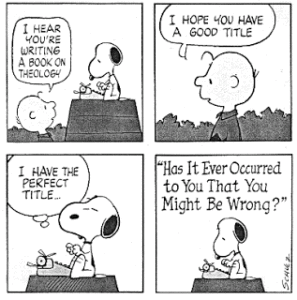The more I read of A.W Tozer, a mid-western born preacher, pastor, author, magazine editor and spiritual mentor to hundreds, the more he both puzzles and astounds me. In very simple terms he internalizes the words of Jesus and through his writing Christianity is furthered. He wrote, and preached thousands of words on a myriad of subjects. He seemed to come back again and again to three themes. What they are is a genuine heartache for the state of the church.
You could l characterize the first of these concerns as seeing the Bible as an end to itself. It is seen as a recipe. Take a verse here and another one from over there and use them to prove your point. The Bible becomes nothing more than a collection of facts that can be dissected, positioned, extrapolated and preached. Preachers today seem to have all the right illustrations and answers to any given problem. They pour two parts from one test tube in the beaker and a couple of drops from another and the expected chemical reaction is the result. There is little room for the inspiration of the Holy Spirit. Tozer saw this as the shortest path to dead pulpits and dead churches. You can be,” Tozer delighted in saying, “straight as a gun barrel theologically and as empty as one spiritually.” The goal of reading the Bible is not to know more about the Bible, or to be able to quote the correct scripture at the correct time, but to be a pointer. A pointer to God Himself. The Word of God, while extremely important, can become more than the source of those words.
Tozer’s second concern was a growing practicality of programs in the church; to insert methods and techniques to make the Church more palatable with the world. He called it pragmatism. It was an attempt to make the church more popular. It was to add things that were more fun, more exciting, more attractive to the world. He wrote,The temptation to introduce “new” things into the work of God has always been too strong for some people to resist. The Church has suffered untold injury at the hands of well-intentioned but misguided persons who have felt that they know more about running God’s work than Christ and His apostles did. Let me interject here. There is nothing inherently wrong with any method unless it dilutes the message or pushes out God. Methodology has become rampant in the church today. No longer do we sing hymns about the blood of Jesus. No longer is the bread and cup venerated as a means of grace; instead we have prepackaged cups with bread in the tear off. It is neater but is it better? Is convention better than the graceful God. I wonder what Peter would think of our church service if he silently crept in the back of these new relevant churches.
Third in his triad of concerns for the church was the lack of true worship. He remarked over and over again about the loss of the sense of majesty, reverence and awe. The Church as he saw it, was trivializing the very thing it was trying to accomplish. He saw it becoming a form of entertainment. Hymns were being replaced by gospel songs, (and now by choruses sung over and over again). The pulpit was becoming a place of humor and endless illustrations. He heard too many laughs and not enough sobs. According to Tozer, “Worship is to feel in your heart and express in some appropriate manner a humbling but delightful sense of admiring awe and astonished wonder and overpowering love in the presence Our Father Which Art in Heaven.”
AMEN and AMEN
Your comments are appreciated.

 Sunday worship is a time where we focus for an hour or so on God. The order of service is very familiar: 15 minutes of spiritual songs, a few announcements, a message from the Bible, an offering, and a benediction. Each is mixed well and served in a comforting way. Sweet. But when it is over, we are trust back into a world that is both common place and not quite so holy.
Sunday worship is a time where we focus for an hour or so on God. The order of service is very familiar: 15 minutes of spiritual songs, a few announcements, a message from the Bible, an offering, and a benediction. Each is mixed well and served in a comforting way. Sweet. But when it is over, we are trust back into a world that is both common place and not quite so holy.